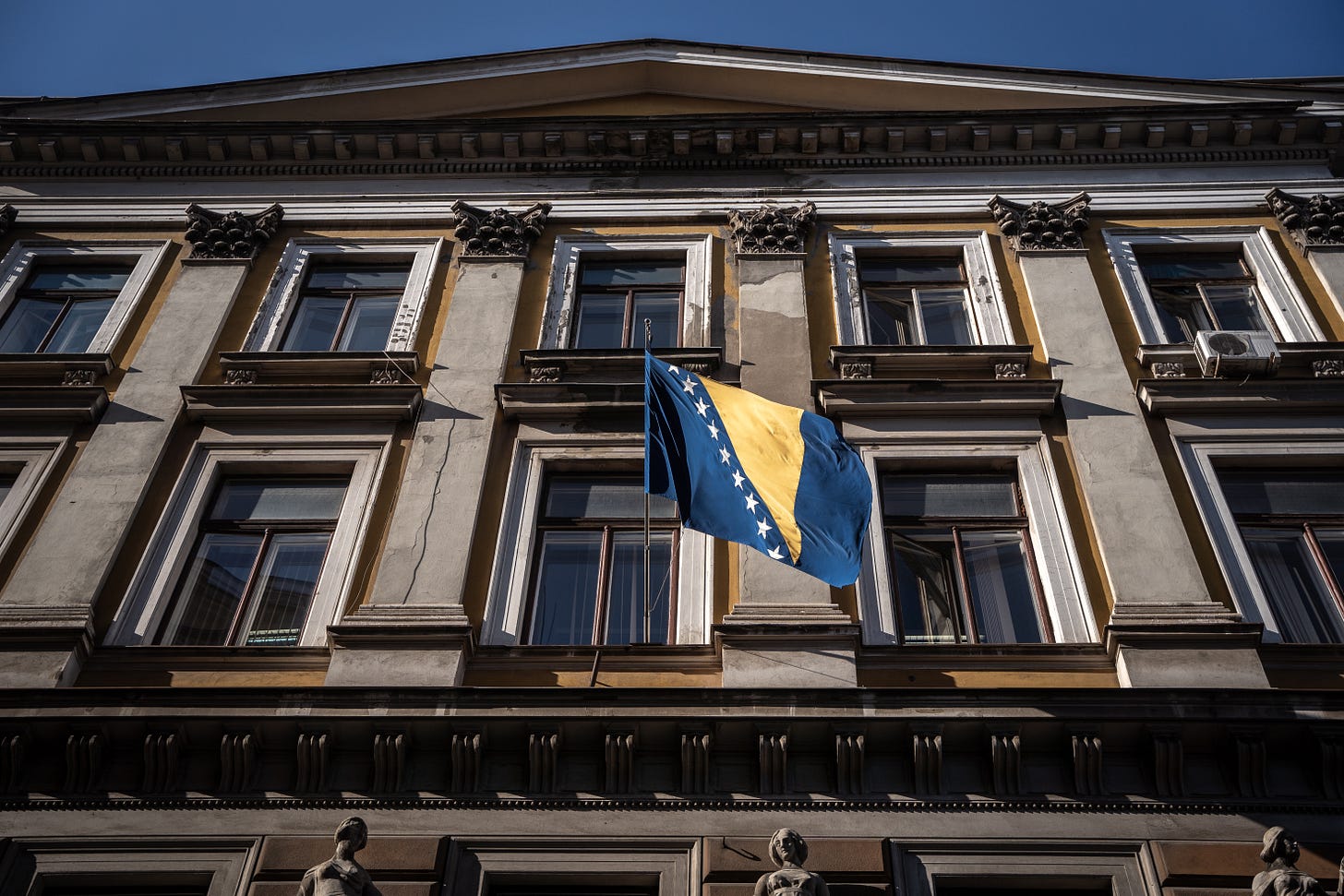Will Czechia Grow Its Army by a Third? What NATO’s New Military Targets Mean for CEE
In this week’s edition, you’ll read about:
Details of NATO’s Target Changes Emerge
Sanctioned Dodik “Siphoned” Public Funds, Now He Wants to Channel Lithium
As the Schwarze Null Ends, CEE Gains Close to Zero
Details of NATO’s Target Changes Emerge
If a NATO member is attacked and Article 5 is invoked, the Czech Republic may need to commit its entire standing army to support it. Before, only a single mechanized brigade was demanded.
This example is just one of several changes expected to be brought by the NATO summit this June.
Significant investments will be required. According to experts familiar with the proposed targets, a country like the Czech Army will need to increase personnel and equipment by at least 30%.
To meet rising expectations, NATO is also likely to raise the defense spending benchmark from 2% to at least 3% of GDP.
The European arms industry could benefit from this shift.
For now, the U.S. remains the dominant global arms supplier, including across Central and Eastern Europe, where militaries rely heavily on American F-16 and F-35 fighter jets, Patriot systems, and Abrams tanks. But amid growing concerns over U.S. control of exported weapons, European countries are rethinking procurement strategies.
This shift is reflected in the proposed €150 billion SAFE Fund, which would allow EU countries to borrow for arms purchases, with a strong preference for equipment made in Europe and developed by firms with “design authority” based in the EU.
Signs of renewed momentum in the European defense industry are already visible. Germany’s Rheinmetall, for example, has announced new ammunition plants in Lithuania and Germany.
Investment in defense tech innovation has also surged in Europe, reaching $5.2 billion in 2024, five times higher than six years ago and 2.5 times more than in the past two years.
According to analysts, the EU has a critical seven-year window to scale, modernize, and expand its defense production. Years of underinvestment have left many European arms manufacturers stagnating. Progress is further slowed by the fact that most NATO members still don’t view long-term defense spending as essential. The exceptions: the U.S., Poland, and the Baltics.
Sanctioned Dodik “Siphoned” Public Funds, Now He Wants to Channel Lithium
Milorad Dodik, the controversial leader of Republika Srpska—a constituent republic of Bosnia and Herzegovina—confirmed in an interview that he has proposed a $100 billion deal to U.S. President Donald Trump, offering American companies the opportunity to mine lithium and other minerals.
According to Dodik, Viktor Orbán’s regime would also be somehow involved in the deal, although details are lacking.
The proposal is rather bizarre, given that Dodik is currently under U.S. sanctions. “Members of this network, which include Dodik’s adult children, facilitate Dodik’s ongoing corruption in Bosnia and Herzegovina’s Republika Srpska, allowing him to siphon public funds from the Republika Srpska and enrich himself and his family at the expense of the citizens of Bosnia and Herzegovina, and functional governance in the country,” wrote the U.S. Department of the Treasury’s Office of Foreign Assets Control in 2023.
As the Schwarze Null Ends, CEE Gains Close to Zero
Germany may be trying to stimulate its sluggish economy through looser fiscal policy, but the ripple effects are unlikely to reach much of Central and Eastern Europe. According to S&P Global, Berlin’s fiscal push will barely register beyond its borders, contributing just 0.1 percentage point to Germany’s growth in 2025.
Whatever modest benefits a recovering German economy might bring are likely to be offset by U.S. tariffs on EU exports, which could shave 0.4 to 0.6 percentage points off GDP in CEE economies such as Poland, Hungary, and Czechia. Hungary is particularly exposed, with its 2025 growth forecast slashed from 3.0% to 1.5%.
Sidenotes:
Czechia ends imports of Russian oil. (Euractiv)
Poland’s automotive industry is nosediving, with car production plunging by as much as 79% year-on-year in the past eight months. (wyborcza.biz)
Ukrainian cloud gaming provider Boosteroid has announced investments of up to USD 500 million in developing IT infrastructure in Poland. The company already has a presence in Ukraine, Romania, the Czech Republic, and Slovakia. (biznes.pap.pl)
Romania, Poland, Slovakia, and Hungary are among the EU countries with the largest budget deficits, according to new data released by Eurostat. (Eurostat)











